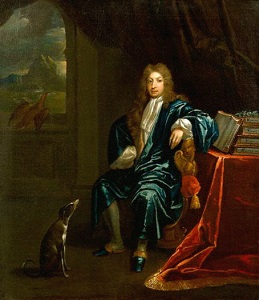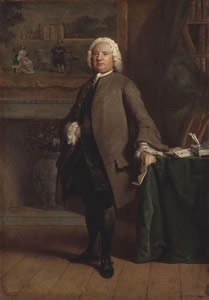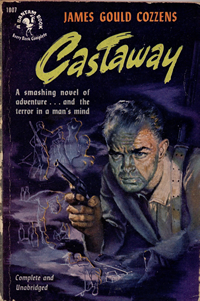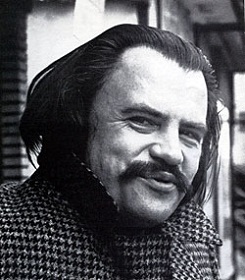|
De Nederlandse schrijfster Marion Pauw werd geboren in Tasmanië op 19 augustus 1973. Zie ook alle tags voor Marion Pauw op dit blog.
Uit: Grijs gebied
“Vanuit een raam ergens in het midden, op tweehoog, vulde de lucht zich met kleur. Groene, gele, blauwe en paarse vlekjes die samen een bonte mengeling vormden. Het duurde even voordat Albert doorhad wat hij zag: tientallen felgekleurde vogels die naar buiten kwamen gevlogen, als in een Alfred Hitchcock-film. Luid krijsend bleven ze ter hoogte van het raam rondfladderen, alsof ze er nog niet aan toe waren om afscheid te nemen. Opeens schoten ze met z’n allen in een schuine lijn naar boven. Gefixeerd bleef Albert naar de vogels staren, bevroren in het moment. Pas toen ze achter de volgende flat waren verdwenen, besefte hij dat hij al die tijd was vergeten te ademen.
(...)
‘Er komen hier zoveel klanten, weet u. Veel vogelliefhebbers. Vogels zijn mijn specialiteit. mensen komen hier van heinde en verre voor mijn sierduiven, kanaries, parkieten, dwergpapegaaien, fazantjes, vinken, kwarteltjes…’
‘Ja, stop maar,’ zei Albert. ‘Maar misschien kunt u even nadenken over een bepaalde klant die hier gisteren is geweest. Zelf nogal een vreemde vogel, als u woordgrappen kunt waarderen.’
‘U bent niet de eerste die die grap maakt,’ zei de man verveeld."

Marion Pauw (Tasmanië, 19 augustus 1973)
De Engelse toneelschrijver, dichter en criticus John Dryden werd geboren op 19 augustus 1631 in Aldwinkle (Northamptonshire). Zie ook mijn blog van 19 augustus 2010 en eveneens alle tags voor John Dryden op dit blog.
Happy The Man
Happy the man, and happy he alone,
He who can call today his own:
He who, secure within, can say,
Tomorrow do thy worst, for I have lived today.
Be fair or foul or rain or shine
The joys I have possessed, in spite of fate, are mine.
Not Heaven itself upon the past has power,
But what has been, has been, and I have had my hour.
Mankind
Men are but children of a larger growth;
Our appetites are apt to change as theirs,
And full as craving too, and full as vain;
And yet the soul, shut up in her dark room,
Viewing so clear abroad, at home sees nothing;
But, like a mole in earth, busy and blind,
Works all her folly up, and casts it outward
To the world's open view.
Life A Cheat
When I consider life, 'tis all a cheat;
Yet, fooled with hope, men favour the deceit;
Trust on, and think to-morrow will repay:
To-morrow's falser than the former day;
Lies worse; and while it says, we shall be blessed
With some new joys, cuts off what we possessed.
Strange cozenage! none would live past years again,
Yet all hope pleasure in what yet remain;
And, from the dregs of life, think to receive
What the first sprightly running could not give.
I'm tired with waiting for this chemic gold,
Which fools us young, and beggars us when old.

John Dryden (19 augustus 1631 – 12 mei 1700)
Portret door James Maubert, na 1700
De Britse schrijver en drukker Samuel Richardson werd geboren op 19 augustus 1689 in Mackworth, Derbyshire. Zie ook alle tags voor Samuel Richardson op dit blog en ook mijn blog van 19 augustus 2009 en ook mijn blog van 19 augustus 2010
Uit: Pamela; or, Virtue Rewarded
„God bless him! and pray with me, my dear father and mother, for a blessing upon him, for he has given mourning and a year’s wages to all my lady’s servants; and I having no wages as yet, my lady having said she should do for me as I deserved, ordered the housekeeper to give me mourning with the rest; and gave me with his own hand four golden guineas, and some silver, which were in my old lady’s pocket when she died; and said, if I was a good girl, and faithful and diligent, he would be a friend to me, for his mother’s sake. And so I send you these four guineas for your comfort; for Providence will not let me want: And so you may pay some old debt with part, and keep the other part to comfort you both. If I get more, I am sure it is my duty, and it shall be my care, to love and cherish you both; for you have loved and cherished me, when I could do nothing for myself. I send them by John, our footman, who goes your way: but he does not know what he carries; because I seal them up in one of the little pill—boxes, which my lady had, wrapt close in paper, that they mayn’t chink; and be sure don’t open it before him.
I know, dear father and mother, I must give you both grief and pleasure; and so I will only say, Pray for your Pamela; who will ever be
Your most dutiful DAUGHTER.
I have been scared out of my senses; for just now, as I was folding up this letter in my late lady’s dressing—room, in comes my young master! Good sirs! how was I frightened! I went to hide the letter in my bosom; and he, seeing me tremble, said, smiling, To whom have you been writing, Pamela?–I said, in my confusion, Pray your honour forgive me!–Only to my father and mother. He said, Well then, let me see how you are come on in your writing! O how ashamed I was!–He took it, without saying more, and read it quite through, and then gave it me again;–and I said, Pray your honour forgive me!–Yet I know not for what: for he was always dutiful to his parents; and why should he be angry that I was so to mine? And indeed he was not angry; for he took me by the hand, and said, You are a good girl, Pamela, to be kind to your aged father and mother.”

Samuel Richardson (19 augustus 1689 – 4 juli 1761)
Portret door Joseph Highmore, 1750
De Poolse schrijver Jerzy Andrzejewski werd geboren in Warschau op 19 augustus 1909. Zie ook alle tags voor Jerzy Andrzeiewski op dit blog en ook mijn blog van 19 augustus 2009.
Uit: Holy Week (Vertaald door Oscar E. Swan)
“Jan Malecki had not seen Irena Lilien for quite some time. As late as the summer of 1941, they still had seen a good deal of each other. By that time, the Liliens had been driven out of their home in Smug; but the German occupation authorities were not yet taking harsher measures against the Jews, so the Liliens, having paid off the necessary people, had avoided confinement in the Warsaw Ghetto. They had even managed to rescue some of their things, and with this remainder of their belongings, still quite sizable and valuable, the entire family moved closer to Warsaw. The Liliens, who before the war had been people of means—and for several generations, at that—were possessed of such a deeply developed sense of security that, even in the new and critical situation in which they now found themselves, it did not occur to them to move to a different suburb. Zalesinek, where they rented an apartment, was located about a quarter of the way to Smug, and many people along the commuter line knew the Liliens, whether personaly or by sight. They had become so much a part of Polish culture and customs that they had no idea they might arouse suspicion by their outward appearance.”
Fortunately, the oldest generation of Liliens, the banker and his wife,did not travel to Warsaw. She, an immense, fat Jewish woman, had been incapacitated for a number of years and never left her wheelchair. Her husband, long ago having withdrawn from affairs at the bank, contented himself by sitting in the sun or, on rainy or cold days, by watching people play bridge. But his son Professor Lilien, his wife, and their daughter, Irena, still traveled to Warsaw as often as before. Mrs. Lilien attracted relatively little attention. Small, slender, and quiet, with irregular but pleasant features, she could pass for Aryan. It was much worse for the professor and Irena.
Irena went into Warsaw several times a week. She visited friends and acquaintances—and a desire to see Malecki occasioned other trips as well. She loved her social life and an atmosphere of fun; she liked to arrange meetings in the bars and cafés that were so fashionable during the war. Irena Lilien was very pretty: tall, dark-haired, and dark-complexioned. Her coarse, thick hair and eastern eyes, however, were strikingly Jewish. When Malecki explained that she ought to be more careful, Irena just laughed and said that the Germans knew nothing of such things.“

Jerzy Andrzejewski (19 augustus 1909 – 19 april 1983)
Cover
De Amerikaanse schrijver James Gould Cozzens werd geboren op 19 augustus 1903 in Chicago. Zie ook alle tags voor James Gould Cozzens op dit blog en ook mijn blog van 19 augustus 2009.
Uit: Castaway
“About his madmen Mr. Lecky was no more certain. He knew less than the little to be learned of the causes or even of the results of madness. Yet for practical purposes one can imagine all that is necessary. As long as maniacs walk like men, you must come close to them to penetrate so excellent a disguise. Once close, you have joined the true werewolf.
Pick for your companion a manic-depressive, afflicted by any of the various degrees of mania - chronic, acute, delirious. Usually more man than wolf, he will be instructive. His disorder lies in the very process of his thinking, rather than in the content of his thought. He cannot wait a minute for the satisfaction of his fleeting desires or the fulfillment of his innumerable schemes. Nor can he, for two minutes, be certain of his intention or constant in any plan or agreement. Presently you may hear his failing made manifest in the crazy concatenation of his thinking aloud, which psychiatrists call "flight of ideas." Exhausted suddenly by this
riotous expense of speech and spirit, he may subside in an apathy dangerous and morose, which you will be well advised not to disturb.
Let the man you meet be, instead, a paretic. He has taken a secret departure from your world. He dwells amidst choicest, most dispendious superlatives. In his arm he has the strength to lift ten elephants. He is already two hundred years old. He is more than nine feet high; his chest is of iron, his right leg is silver, his incomparable head is one whole ruby. Husband of a thousand wives, he has begotten on them ten thousand children. Nothing is mean about him; his urine is white wine; his faeces are always soft gold. However, despite his splendor and his extraordinary attainments, he cannot successfully pronounce the words: electricity, Methodist Episcopal, organization, third cavalry brigade. Avoid them. Infuriated by your demonstration of any accomplishment not his, he may suddenly kill you.”

James Gould Cozzens (19 augustus 1903 – 9 augustus 1978)
Cover
De Canadese schrijver en dichter Claude Gauvreau werd geboren op 19 augustus 1925 in Montreal. Zie ook alle tags voor Claude Gauvreau op dit blog en ook mijn blog van 19 augustus 2009.
La censure
La censure? La censure! La censure, c'est la gargouille qui vomit
hideusement son plomb liquide sur la
chair vive de la poésie!
La censure, c'est l'hydre acéphale aux mille bras aveugles qui abat comme un
sacrifice sans défense
chaque érection de sensibilité délicate au moyen de ses moulinets vandales!
La censure, c'est le rasoir gigantesque rasant au niveau du médiocre toute
tête qui ose dépasser!
La censure, c'est la camisole de force imposée au vital!
La censure, c'est la défiguration imposée sur la grâce au moyen d'un sourcil
froncé saugrenu!
La censure, c'est le saccage du rythme!
La censure, c'est le crime à l'état pur!
La censure, c'est l'enfoncement du cerveau dans un moulin à viande dont il
surgit effilochement!
La censure, c'est la castration de tout ce qu'il y a de viril!
La censure, c'est la chasse obtuse à la fantaisie et à l'audace
illuminatrice!
La censure, c'est la ceinture de chasteté appliquée à tout con florissant!
La censure, c'est l'interdiction de la joie à poivre!
La censure, c'est le morose enlaidissant tout!
La censure, c'est l'abdication du rare et du fin!
La censure, c'est la maculation et le hachage en persil de l'unique toujours
gaillard!
La censure, c'est l'abdication de la liberté!
La censure, c'est le règne ignorantiste du totalitarisme intolérant envers
tout objet qui n'est pas
monstruosité rétractile!
La censure, c'est l'injure homicide à la loyauté des sens!
La censure, c'est le pet par dessus l'encens!
La censure, c'est la barbarie arrogante!
La censure, c'est le broiement du coeur palpitant dans un gros étau brutal!
Oui, mille fois oui, la censure c'est la négation de la pensée.

Claude Gauvreau (19 augustus 1925 – 7 juli 1971)
De Spaanse dichter en schrijver Iñigo López de Mendoza werd geboren op 19 augustus 1398 in Carrión de los Condes, Palencia. Zie ook alle tags voor Iñigo López de Mendoza.
Uit: The prouerbes of the noble and woorthy souldier Sir Iames Lopez de Mendoza Marques of Santillana with the paraphrase of D. Peter Diaz of Toledo: wherin is contained whatsoeuer is necessarie to the leading of an honest and vertuous life. Translated out of Spanishe by Barnabe Googe.
“EVery wyse Oratour, as Tullie in his booke de Oratore teacheth, ought principally▪ in whatsoeuer matter he dealeth, to consider three things: That is, to make all those that shall eyther heare his speach, or reade his workes, to be well willing, vnderstanding, and mindefull. The speaker shall make his audience well willing, when he laboureth to obteyne their Page [unnumbered] fauour and good wil towardes him. For no man wil gladly geue eare to such a man, as he is afore euil perswaded of: he maketh his hearers to vnderstād, when he declareth the matter, that hee meaneth to entreate off, in shewing that it shal be profitable & com∣modious, he causeth them to be attentiue, or mindeful, when he mooueth or stirreth them vp by good meanes & inductions to be rea∣die to heare, not hauing their minds caried away with anie other matters. All these points hath this learned gentleman (folow∣ing this inscription) obserued in al his dis∣course. But especially in this first Prouerbe he hath obserued ye first, in making him that shal reade him, wel minded towardes him, procuring his fauour & goodwil, in calling him by ye name of his sōne & beloued. For as the Ciuil law sayth, we can name no man by a more sweet or better name, thē to call him our sonne. He maketh him to vnderstand, in shewing him howe to direct or order his life amōgst the people: he maketh him attētiue, in these wordes, where he saith, Geue eare. And the meaning and matter of this Pro∣uerbe, is the most sweet & gracious behaui∣our, that men of all degrees ought to vse in their conuersation.”

Iñigo López de Mendoza (19 augustus 1398 – 25 maart 1458)
Gebaseerd op het potret door Jorge Inglés, 1455
19-08-2017 om 11:31
geschreven door Romenu 
Tags:Marion Pauw, John Dryden, Samuel Richardson, Jerzy Andrzejewski, James Gould Cozzens, Claude Gauvreau, Inigo de Mendoza, Romenu
|

